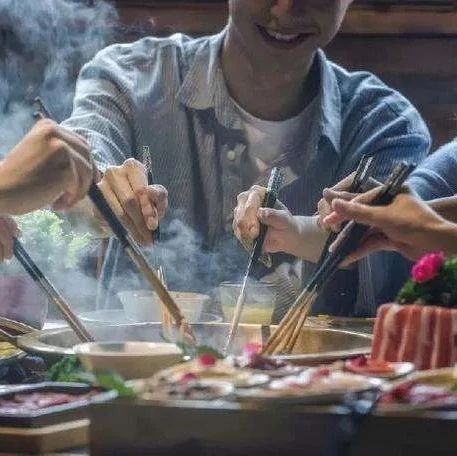
The rules of eating! (good text in depth)
Eating rules is not only self-cultivation, but also family style.
the Book of Rites says: "the beginning of husband's etiquette begins with diet."
the first etiquette rules in China began with diet and originated from a small dining table.
whether you are eating at home, entertaining guests or attending a banquet, the rules at the table are essential.
seating, ordering, sitting, eating, leaving, and other aspects all reflect a person's upbringing.
the elder does not attend the table, and the younger generation does not sit down
Di Zi Gui has a saying: "or eat or sit and walk." The elderly come first and the young come second. "
in Chinese food rules, we should pay attention to the order of the young and the young, and respect and respect the elders.
the elders should be seated first, the seats facing the gate should be respected, and others should be seated next to each other according to their seniority and age.
when the people are all together and the dishes are ready, then move the chopsticks. When picking up food, the younger generation should also be courteous to the older people to drop the chopsticks first. Don't eat on your own, and you can't leave the table with a dull head.
neither shake legs nor shrug shoulders
when you sit, you have to eat.
eating appearance is a person's appearance. Don't shake your legs and shrug your shoulders after sitting down.
most people are disgusted when they see this, not to mention shaking their legs and shrugging their shoulders while eating.
therefore, you must eat and sit in a correct posture, behave elegantly, and take into account the feelings of others in order to give yourself extra points and benefit yourself.
hold the bowl with your hands and eat with your mouth
as the saying goes, "if you don't hold the bowl, you will be poor all your life."
when eating, holding a bowl in one hand and chopsticks in the other is a rule that has been left behind for generations.
holding the bowl with hands is not only convenient to eat, but also the treasure of grain and the respect of the deskmates.
moreover, take what you eat to your mouth, eat it with your mouth, and don't put your mouth up to eat.
otherwise, in the eyes of others, it is not only ugly to eat, but also very greedy inside.
Don't pick up cross-river food, don't knock on dishes
it's the same with picking up food without rules.
pick up food in front of yourself, not over the center of the dish to pick up the food on the other side.
this is the most basic courtesy of eating. If you pick and pick all over the plate, you will be ill-bred.
knock on the plate, as the old saying goes, this is criticizing the cook for making bad food, knocking on the bowl, as the old saying goes, "begging beggars."
therefore, knocking on plates and bowls is not allowed, because this means that there are no rules and are not sensible, and it will only make people laugh.
chopsticks do not stand, but wine does not pour
there is a folk custom that when someone in the family dies, they will put a bowl of "inverted rice" in front of the spirit, and a pair of chopsticks will be intersected on the meal to pay tribute to the deceased.
so inserting chopsticks in the rice bowl is a very taboo thing, and the old people in the family will also mind very much, after all, it is unlucky.
Wine is not on the contrary, because it is only in the traditional ancestor worship that tea and wine are poured backhand.
if you pour it to the guest like this, it is quite impolite, and the other person will be very uncomfortable.
say "add rice", not "beg"
as the saying goes, "the measure of speaking is the size of being a man."
Elegant and striking, nobody should be without our baby blue semi formal dress. We have the right selection to suit your tastes.
the same is true at the dinner table. When others finish their bowls of rice and want to add food to each other, they must not ask, "do you want more rice?"
We can say, "do you want any more rice?"
because "begging" sounds like calling someone a beggar, saying "add rice" will not have this ambiguity, and it will be more respectful.
China is a country of etiquette. The rules handed down by our ancestors should not be forgotten or lost.
like the rules of eating, it seems to be trivial, but it actually contains profound human feelings and worldly skills.
eating rules is not only self-cultivation, but also family style.